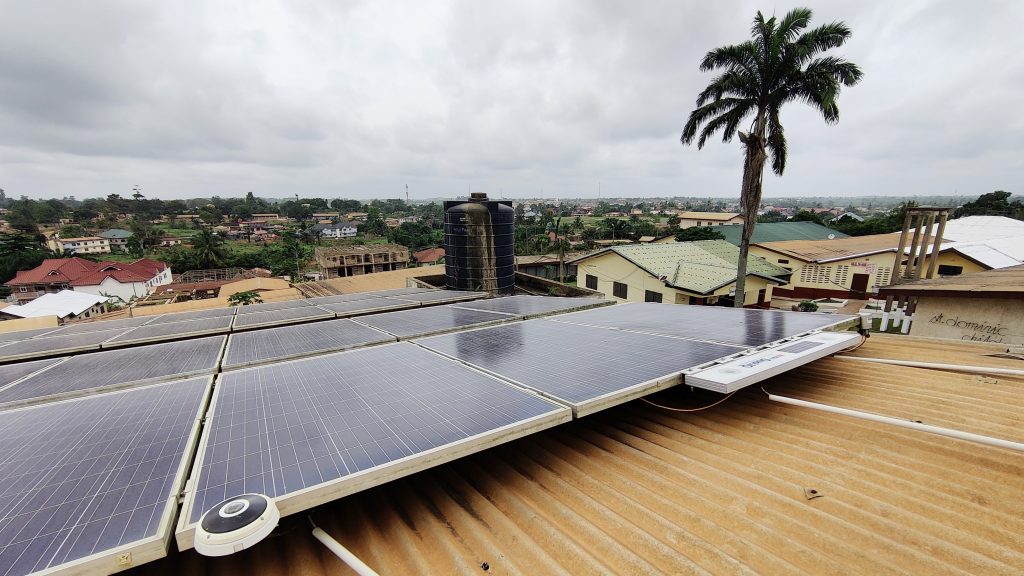
Interview with Jonas Bauhof and Susanne von Itter from EADI on the role of communication work for research projects.
EADI is the knowledge and network partner for the EnerSHelF project. Can you explain to us, what is entailed in this role?
We are responsible of disseminating the project’s research results both to our stakeholders but also the public. For this, we use different forms of communication and are also involved in planning network events and managing the website. By doing so, we aim to enhance the uptake of research results among relevant stakeholders in academia and beyond. It is essential to increase the real-world impact of the EnerSHelF project – also past its funding period. As the leading European network in the field of development studies, EADI can use its network to reach out to relevant outputs and institutions. This helps us to reach out to a broad set of actors in the field.
Why is communication work important for research projects?
There are many great research projects, where the outcome of their work is either hidden behind paywalls of research journals or the content is hard to understand for those who are not experts in the field. But research and its results should be made publicly available and be translated into a language that is comprehensible to people outside academia likewise. But also, to reach out to policy makers, who are unable to read every study or paper that might be relevant for them, this knowledge transfer is of great relevance. To give you a short answer: With proper communication throughout a research project, it is possible to increase the impact of the outcomes.
What was your strategy to disseminate the research results of EnerSHelF?
We use different platforms and ways to communicate EnerSHelF’s research results. The main platform is our website but also the EnerSHelF Twitter channel. Here, we publish interviews with researchers of the project, reports that were put together by our partners, news on the recent progress or notification, when research results are published in academic journals. Furthermore, we produced three videos with researchers and our project leaders. However, we also use other platforms to disseminate the results: EnerSHelF was featured on various blogs focusing on development issues and we make sure to be regularly featured on the Client II website and newsletter.
Is there any recommendation you would like to give to other research projects regarding research communication?
What we see as pivotal is to plan out a communication strategy right from the start of your project. This helps to assign the necessary resources as proper dissemination takes time. Throughout the project, the researchers should be included in the process of communication work and understand the importance of it. With all the different digital forms of communication, it is possible to lay out a multifaceted dissemination strategy. Additionally, it is important to keep in mind, who your audience is. This influences the way you communicate. A video interview might not be the best way to reach out to policy makers but a one-pager with the major research results could be the better option.
How will you continue your work within the project? What is planned for the past months of the project period?
As the project is getting closer to its end, we are planning the publication of policy and business briefs. They include the results of the different work packages formulated into recommendations to our stakeholders and policy makers. Additionally, we are continuing posting updates from the projects on the different communication platforms, informing everyone who is interested about EnerSHelF’s progress. With the project results at hand, we will also reach out to different outlets – spreading the research outcome as broadly as possible.
Authors
Jonas Bauhof is a research assistant at the International Centre for Sustainable Development (IZNE), Bonn-Rhein-Sieg University of Applied Sciences, Sankt Augustin. He also works as a project assistant at the European Association of Development Research and Training Institutes. He holds a M.Sc. in Global Development from Copenhagen University and a B.A. in European Studies from University of Bremen.
Susanne von Itter is Executive Secretary of EADI and holds a degree in Geography, with a focus on ecology and environment. As the Director of the EADI head office in Bonn, Germany, she has considerable experience working on management of collaborative research projects. Susanne has also worked extensively on policy-oriented research communication and management of high-level events. She has coordinated seven EADI General Conferences and a large number of scientific events in Europe. She has led the EADI strategy on information services for many years, transforming the EADI website into an information portal with cutting edge information on European and international development issues.

